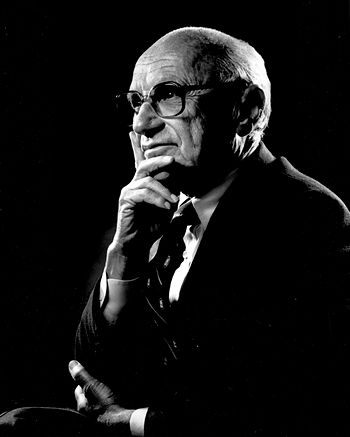
There are four ways in which you can spend money. You can spend your own money on yourself. When you do that, why then you really watch out what you’re doing, and you try to get the most for your money. Then you can spend your own money on somebody else. For example, I buy a birthday present for someone. Well, then I’m not so careful about the content of the present, but I’m very careful about the cost. Then, I can spend somebody else’s money on myself. And if I spend somebody else’s money on myself, then I’m sure going to have a good lunch! Finally, I can spend somebody else’s money on somebody else. And if I spend somebody else’s money on somebody else, I’m not concerned about how much it is, and I’m not concerned about what I get. And that’s government. And that’s close to 40% of our national income.

Friedman’s myopic analysis only applies to modern representative governments. There are other forms of governance.
For example, the Capetian dynasty in France lasted 800 years. It ended with the French Revolution. The expansive Russian Empire, as begun by Peter the Great, lasted 200 years. It ended in the Russian Revolution.
In part, both revolutions above occurred because those at the top became too careful with how they spent their money on those at the bottom.
Having learned their lesson from the French Revolution, European governments were able to weather the climatic disasters of the early 19th century by creating the modern welfare state. Despite harsh winters and poor harvests, no European governments were over thrown during that period. To their peril, the Romanovs disregarded that hard learned lesson a century later.
In the end, as the history of empires shows, welfare turns out to be cheaper than revolution. After all, the latter costs those at the top everything.